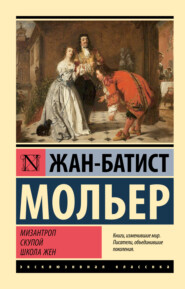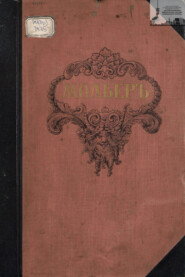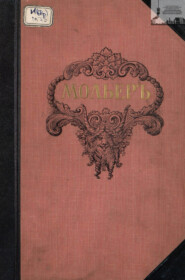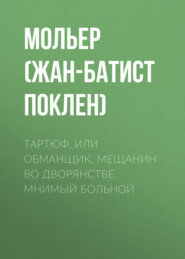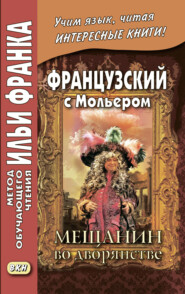По всем вопросам обращайтесь на: info@litportal.ru
(©) 2003-2024.
✖
The Pretentious Young Ladies
Год написания книги
2017
Настройки чтения
Размер шрифта
Высота строк
Поля
GORG. What fault have you to find with them?
MAD. Their's is fine gallantry, indeed. Would you believe it? they began with proposing marriage to us.
GORG. What would you have them begin with – with a proposal to keep you as mistresses? Is not their proposal a compliment to both of you, as well as to me? Can anything be more polite than this? And do they not prove the honesty of their intentions by wishing to enter these holy bonds?
MAD. O, father! Nothing can be more vulgar than what you have just said. I am ashamed to hear you talk in such a manner; you should take some lessons in the elegant way of looking at things.
GORG. I care neither for elegant ways nor songs. I tell you marriage is a holy and sacred affair; to begin with that is to act like honest people.
[Footnote: The original has a play on words. Madelon says, in addressing her father, vous devriez un pen vous faire apprendre le bel air des choses, upon which he answers, je n'ai que faire ni d'air ni de chanson. Air means tune as well as look, appearance.]
MAD. Good Heavens! If everybody was like you a love-story would soon be over. What a fine thing it would have been if Cyrus had immediately espoused Mandane, and if Aronce had been married all at once to Clélie.
[Footnote: Cyrus and Mandane are the two principal characters of Mademoiselle de Scudéry's novel Artamene, on the Grand Cyrus; Aronce and Clélie of the novel Clélie, by the same author.]
GORG. What is she jabbering about?
MAD. Here is my cousin, father, who will tell as well as I that matrimony ought never to happen till after other adventures. A lover, to be agreeable, must understand how to utter fine sentiments, to breathe soft, tender, and passionate vows; his courtship must be according to the rules. In the first place, he should behold the fair one of whom he becomes enamoured either at a place of worship, [Footnote: See note 15, page 33.] or when out walking, or at some public ceremony; or else he should be introduced to her by a relative or a friend, as if by chance, and when he leaves her he should appear in a pensive and melancholy mood. For some time he should conceal his passion from the object of his love, but pay her several visits, in every one of which he ought to introduce some gallant subject to exercise the wits of all the company. When the day comes to make his declarations – which generally should be contrived in some shady garden-walk while the company is at a distance – it should be quickly followed by anger, which is shown by our blushing, and which, for a while, banishes the lover from our presence. He finds afterwards means to pacify us, to accustom us gradually to hear him depict his passion, and to draw from us that confession which causes us so much pain. After that come the adventures, the rivals who thwart mutual inclination, the persecutions of fathers, the jealousies arising without any foundation, complaints, despair, running away with, and its consequences. Thus things are carried on in fashionable life, and veritable gallantry cannot dispense with these forms. But to come out point-blank with a proposal of marriage, – to make no love but with a marriage-contract, and begin a novel at the wrong end! Once more, father, nothing can be more tradesmanlike, and the mere thought of it makes me sick at heart.
GORG. What deuced nonsense is all this? That is highflown language with a vengeance!
CAT. Indeed, uncle, my cousin hits the nail on the head. How can we receive kindly those who are so awkward in gallantry. I could lay a wager they have not even seen a map of the country of Tenderness, and that Love-letters, Trifling attentions, Polite epistles, and Sprightly verses, are regions to them unknown.
[Footnote: The map of the country of Tenderness (la carte de Tendre) is found in the first part of Clélie (see note 2, page 146); Love-letter (Billetdoux); Polite epistle (Billet galant); Trifling attentions (Petit Soins); Sprightly verses (Jolts vers), are the names of villages to be found in the map, which is a curiosity in its way.]
Do you not see that the whole person shews it, and that their external appearance is not such as to give at first sight a good opinion of them. To come and pay a visit to the object of their love with a leg without any ornaments, a hat without any feathers, a head with its locks not artistically arranged, and a coat that suffers from a paucity of ribbons. Heavens! what lovers are these! what stinginess in dress! what barrenness of conversation! It is not to be allowed; it is not to be borne. I also observed that their ruffs
[Footnote: The ruff (rabat) was at first only the shirt-collar pulled out and worn outside the coat. Later ruffs were worn, which were not fastened to the shirt, sometimes adorned with lace, and tied in front with two strings with tassels. The rabat was very fashionable during the youthful years of Louis XIV.]
were not made by the fashionable milliner, and that their breeches were not big enough by more than half-a-foot.
GORG. I think they are both mad, nor can I understand anything of this gibberish. Cathos, and you Madelon…
MAD. Pray, father, do not use those strange names, and call us by some other.
GORG. What do you mean by those strange names? Are they not the names your godfathers and godmothers gave you?
MAD. Good Heavens! how vulgar you are! I confess I wonder you could possibly be the father of such an intelligent girl as I am. Did ever anybody in genteel style talk of Cathos or of Madelon? And must you not admit that either of these names would be sufficient to disgrace the finest novel in the world?
CAT. It is true, uncle, an ear rather delicate suffers extremely at hearing these words pronounced, and the name of Polixena, which my cousin has chosen, and that of Amintha, which I took, possesses a charm, which you must needs acknowledge.
[Footnote: The precieuses often changed their names into more poetical and romantic appellations. The Marquise de Rambouillet, whose real name was Catherine, was known under the anagram of Arthenice.]
GORG. Hearken; one word will suffice. I do not allow you to take any other names than those that were given you by your godfathers and godmothers; and as for those gentlemen we are speaking about, I know their families and fortunes, and am determined they shall be your husbands. I am tired of having you upon my hands. Looking after a couple of girls is rather too weighty a charge for a man of my years.
CAT. As for me, uncle, all I can say is, that I think marriage a very shocking business. How can one endure the thought of lying by the side of a man, who is really naked?
MAD. Give us leave to take breath for a short time among the fashionable world of Paris, where we are but just arrived. Allow us to prepare at our leisure the groundwork of our novel, and do not hurry on the conclusion too abruptly.
GORG. (Aside). I cannot doubt it any longer; they are completely mad. (Aloud). Once more, I tell you, I understand nothing of all this gibberish; I will be master, and to cut short all kinds of arguments, either you shall both be married shortly, or, upon my word, you shall be nuns; that I swear.
[Footnote: This scene is the mere outline of the well known quarrel between Chrysale, Philaminte, and Belinda in the "Femmes Savantes" (see vol. iii.) but a husband trembling before his wife, and only daring to show his temper to his sister, is a much more tempting subject for a dramatic writer than a man addressing in a firm tone his daughter and niece.]
SCENE VI. – CATHOS, MADELON
CAT. Good Heavens, my dear, how deeply is your father still immersed in material things! how dense is his understanding, and what gloom overcasts his soul!
MAD. What can I do, my dear? I am ashamed of him. I can hardly persuade myself I am indeed his daughter; I believe that an accident, some time or other, will discover me to be of a more illustrious descent.
CAT. I believe it; really, it is very likely; as for me, when I consider myself…
SCENE VII. – CATHOS, MADELON, MAROTTE
MAR. Here is a footman asks if you are at home, and says his master is coming to see you.
MAD. Learn, you dunce, to express yourself a little less vulgarly. Say, here is a necessary evil inquiring if it is commodious for you to become visible.
[Footnote: All these and similar sentences were really employed by the precieuses.]
MAR. I do not understand Latin, and have not learned philosophy out of
Cyrus, as you have done.
[Footnote: Artamene, ou le Grand Cyrus, (1649-1653) a novel in ten volumes by Madle. de Scudery.]
MAD. Impertinent creature! How can this be borne! And who is this footman's master?
MAR. He told me it was the Marquis de Mascarille.
MAD. Ah, my dear! A marquis! a marquis! Well, go and tell him we are visible. This is certainly some wit who has heard of us.
CAT. Undoubtedly, my dear.
MAD. We had better receive him here in this parlour than in our room.
Let us at least arrange our hair a little and maintain our reputation.
Come in quickly, and reach us the Counsellor of the Graces.
MAR. Upon my word, I do not know what sort of a beast that is; you must speak like a Christian if you would have me know your meaning.
CAT. Bring us the looking-glass, you blockhead! and take care not to contaminate its brightness by the communication of your image.
SCENE VIII. – MASCARILLE, TWO CHAIRMEN
MASC. Stop, chairman, stop. Easy does it! Easy, easy! I think these boobies intend to break me to pieces by bumping me against the walls and the pavement.
1 CHAIR. Ay, marry, because the gate is narrow and you would make us bring you in here.
MAD. Their's is fine gallantry, indeed. Would you believe it? they began with proposing marriage to us.
GORG. What would you have them begin with – with a proposal to keep you as mistresses? Is not their proposal a compliment to both of you, as well as to me? Can anything be more polite than this? And do they not prove the honesty of their intentions by wishing to enter these holy bonds?
MAD. O, father! Nothing can be more vulgar than what you have just said. I am ashamed to hear you talk in such a manner; you should take some lessons in the elegant way of looking at things.
GORG. I care neither for elegant ways nor songs. I tell you marriage is a holy and sacred affair; to begin with that is to act like honest people.
[Footnote: The original has a play on words. Madelon says, in addressing her father, vous devriez un pen vous faire apprendre le bel air des choses, upon which he answers, je n'ai que faire ni d'air ni de chanson. Air means tune as well as look, appearance.]
MAD. Good Heavens! If everybody was like you a love-story would soon be over. What a fine thing it would have been if Cyrus had immediately espoused Mandane, and if Aronce had been married all at once to Clélie.
[Footnote: Cyrus and Mandane are the two principal characters of Mademoiselle de Scudéry's novel Artamene, on the Grand Cyrus; Aronce and Clélie of the novel Clélie, by the same author.]
GORG. What is she jabbering about?
MAD. Here is my cousin, father, who will tell as well as I that matrimony ought never to happen till after other adventures. A lover, to be agreeable, must understand how to utter fine sentiments, to breathe soft, tender, and passionate vows; his courtship must be according to the rules. In the first place, he should behold the fair one of whom he becomes enamoured either at a place of worship, [Footnote: See note 15, page 33.] or when out walking, or at some public ceremony; or else he should be introduced to her by a relative or a friend, as if by chance, and when he leaves her he should appear in a pensive and melancholy mood. For some time he should conceal his passion from the object of his love, but pay her several visits, in every one of which he ought to introduce some gallant subject to exercise the wits of all the company. When the day comes to make his declarations – which generally should be contrived in some shady garden-walk while the company is at a distance – it should be quickly followed by anger, which is shown by our blushing, and which, for a while, banishes the lover from our presence. He finds afterwards means to pacify us, to accustom us gradually to hear him depict his passion, and to draw from us that confession which causes us so much pain. After that come the adventures, the rivals who thwart mutual inclination, the persecutions of fathers, the jealousies arising without any foundation, complaints, despair, running away with, and its consequences. Thus things are carried on in fashionable life, and veritable gallantry cannot dispense with these forms. But to come out point-blank with a proposal of marriage, – to make no love but with a marriage-contract, and begin a novel at the wrong end! Once more, father, nothing can be more tradesmanlike, and the mere thought of it makes me sick at heart.
GORG. What deuced nonsense is all this? That is highflown language with a vengeance!
CAT. Indeed, uncle, my cousin hits the nail on the head. How can we receive kindly those who are so awkward in gallantry. I could lay a wager they have not even seen a map of the country of Tenderness, and that Love-letters, Trifling attentions, Polite epistles, and Sprightly verses, are regions to them unknown.
[Footnote: The map of the country of Tenderness (la carte de Tendre) is found in the first part of Clélie (see note 2, page 146); Love-letter (Billetdoux); Polite epistle (Billet galant); Trifling attentions (Petit Soins); Sprightly verses (Jolts vers), are the names of villages to be found in the map, which is a curiosity in its way.]
Do you not see that the whole person shews it, and that their external appearance is not such as to give at first sight a good opinion of them. To come and pay a visit to the object of their love with a leg without any ornaments, a hat without any feathers, a head with its locks not artistically arranged, and a coat that suffers from a paucity of ribbons. Heavens! what lovers are these! what stinginess in dress! what barrenness of conversation! It is not to be allowed; it is not to be borne. I also observed that their ruffs
[Footnote: The ruff (rabat) was at first only the shirt-collar pulled out and worn outside the coat. Later ruffs were worn, which were not fastened to the shirt, sometimes adorned with lace, and tied in front with two strings with tassels. The rabat was very fashionable during the youthful years of Louis XIV.]
were not made by the fashionable milliner, and that their breeches were not big enough by more than half-a-foot.
GORG. I think they are both mad, nor can I understand anything of this gibberish. Cathos, and you Madelon…
MAD. Pray, father, do not use those strange names, and call us by some other.
GORG. What do you mean by those strange names? Are they not the names your godfathers and godmothers gave you?
MAD. Good Heavens! how vulgar you are! I confess I wonder you could possibly be the father of such an intelligent girl as I am. Did ever anybody in genteel style talk of Cathos or of Madelon? And must you not admit that either of these names would be sufficient to disgrace the finest novel in the world?
CAT. It is true, uncle, an ear rather delicate suffers extremely at hearing these words pronounced, and the name of Polixena, which my cousin has chosen, and that of Amintha, which I took, possesses a charm, which you must needs acknowledge.
[Footnote: The precieuses often changed their names into more poetical and romantic appellations. The Marquise de Rambouillet, whose real name was Catherine, was known under the anagram of Arthenice.]
GORG. Hearken; one word will suffice. I do not allow you to take any other names than those that were given you by your godfathers and godmothers; and as for those gentlemen we are speaking about, I know their families and fortunes, and am determined they shall be your husbands. I am tired of having you upon my hands. Looking after a couple of girls is rather too weighty a charge for a man of my years.
CAT. As for me, uncle, all I can say is, that I think marriage a very shocking business. How can one endure the thought of lying by the side of a man, who is really naked?
MAD. Give us leave to take breath for a short time among the fashionable world of Paris, where we are but just arrived. Allow us to prepare at our leisure the groundwork of our novel, and do not hurry on the conclusion too abruptly.
GORG. (Aside). I cannot doubt it any longer; they are completely mad. (Aloud). Once more, I tell you, I understand nothing of all this gibberish; I will be master, and to cut short all kinds of arguments, either you shall both be married shortly, or, upon my word, you shall be nuns; that I swear.
[Footnote: This scene is the mere outline of the well known quarrel between Chrysale, Philaminte, and Belinda in the "Femmes Savantes" (see vol. iii.) but a husband trembling before his wife, and only daring to show his temper to his sister, is a much more tempting subject for a dramatic writer than a man addressing in a firm tone his daughter and niece.]
SCENE VI. – CATHOS, MADELON
CAT. Good Heavens, my dear, how deeply is your father still immersed in material things! how dense is his understanding, and what gloom overcasts his soul!
MAD. What can I do, my dear? I am ashamed of him. I can hardly persuade myself I am indeed his daughter; I believe that an accident, some time or other, will discover me to be of a more illustrious descent.
CAT. I believe it; really, it is very likely; as for me, when I consider myself…
SCENE VII. – CATHOS, MADELON, MAROTTE
MAR. Here is a footman asks if you are at home, and says his master is coming to see you.
MAD. Learn, you dunce, to express yourself a little less vulgarly. Say, here is a necessary evil inquiring if it is commodious for you to become visible.
[Footnote: All these and similar sentences were really employed by the precieuses.]
MAR. I do not understand Latin, and have not learned philosophy out of
Cyrus, as you have done.
[Footnote: Artamene, ou le Grand Cyrus, (1649-1653) a novel in ten volumes by Madle. de Scudery.]
MAD. Impertinent creature! How can this be borne! And who is this footman's master?
MAR. He told me it was the Marquis de Mascarille.
MAD. Ah, my dear! A marquis! a marquis! Well, go and tell him we are visible. This is certainly some wit who has heard of us.
CAT. Undoubtedly, my dear.
MAD. We had better receive him here in this parlour than in our room.
Let us at least arrange our hair a little and maintain our reputation.
Come in quickly, and reach us the Counsellor of the Graces.
MAR. Upon my word, I do not know what sort of a beast that is; you must speak like a Christian if you would have me know your meaning.
CAT. Bring us the looking-glass, you blockhead! and take care not to contaminate its brightness by the communication of your image.
SCENE VIII. – MASCARILLE, TWO CHAIRMEN
MASC. Stop, chairman, stop. Easy does it! Easy, easy! I think these boobies intend to break me to pieces by bumping me against the walls and the pavement.
1 CHAIR. Ay, marry, because the gate is narrow and you would make us bring you in here.






